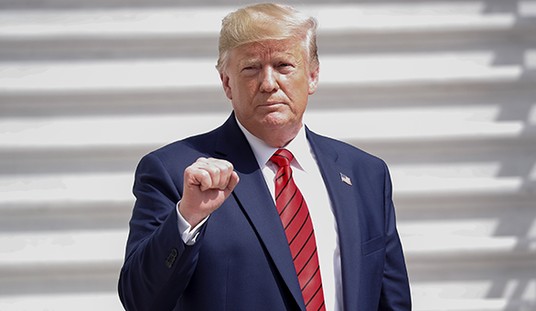Claudia Rosett is not surprisingly upset with the limited scope and conclusions of the Volcker Committee investigation into the Grand Theft Oil-for-Food.
Volcker’s report is at best a beginning, and a skewed and incomplete one at that. To be fair, credit is due to some of the investigators on Volcker’s staff, who have conducted many interviews and toiled down many byways of the U.N. paper trail to produce such items as footnote 64, page 27, Volume III. Here we find that “kickbacks were levied on all or nearly all contracts” among the thousands of U.N.-approved deals done by Saddam Hussein, as the program, during its final years, hit its full multibillion annual stride. The investigators have also painstakingly documented such findings as the one on page 124 of Volume III. Here we find that, during Oil-for-Food, Secretary General Kofi Annan, his deputy secretary-general, Louise Frechette, and his chief of staff, Iqbal Riza, “were all informed of the issue of kickbacks, but remained passive.”
But somewhere between the Volcker committee’s labors on the ground and the conclusions of the three commissioners at the top–former Fed chairman Volcker, South African justice Richard Goldstone, and Swiss lawyer Mark Pieth–a fog descends. Despite the load of detail, illuminating and deeply damning to the United Nations, the result is a patchwork of dropped leads and watered-down judgments, leading in some cases to unwarranted and even bizarre conclusions.
You can read the rest at the Weekly Standard site, but suffice it to say that, taking her work together, Claudia has left a paper/digital trail on this scandal that will give future historians a field day evaluating the work of Mr. Volcker.
As a mystery writer, my question is why the former Chairman of the Federal Reserve would risk his considerable reputation promulgating a report that threatens to be ultimately regarded as a whitewash. Perhaps he feels secure the New York Times and the Washington Post will take no more than a desultory interest in investigating further. After all, this is not about Nixon. It’s only about the United Nations. And since Mr. Volcker is 78, perhaps he is unaware that 1000 Woodward & Bernsteins are blooming all around.
But even so, it is peculiar. I am not searching for a MacGuffin in this crime as historically redolent as the one in the original The Name of the Rose (Aristotle’s Comedy). Paul Volcker is not a man of the complexity of Umberto Eco (to put it mildly). But, given that any serious UN reform has now apparently evaporated into thin air, I would like to know… as the saying goes… cui bono?
Ironically, we may find out more from, of all people, Henry Hyde. As Rosett concludes:
It’s all enough to raise questions about the agenda of the Volcker probe itself. As it happens, Rep. Henry Hyde’s Committee on International Relations is planning to do just that. Hyde’s investigators expect to focus on, among other things, why one of Volcker’s lead investigators, Robert Parton, defected this past April with boxes of evidence. Parton explained via his lawyer that he had resigned on “principle” because the second of Volcker’s three interim reports had been too soft on Annan. Volcker went through the courts to silence Parton, but that arrangement is about to end. Hyde’s inquiry is expected to issue a report on the United Nations later this fall. Coleman’s investigators into Oil-for-Food are also due to check in. Federal prosecutors have issued a number of indictments related to U.N. corruption. And–who knows?–Volcker next month gets one more chance.
Parton, as many readers will recall, is of special interest to this blog. I will be watching closely.









Join the conversation as a VIP Member